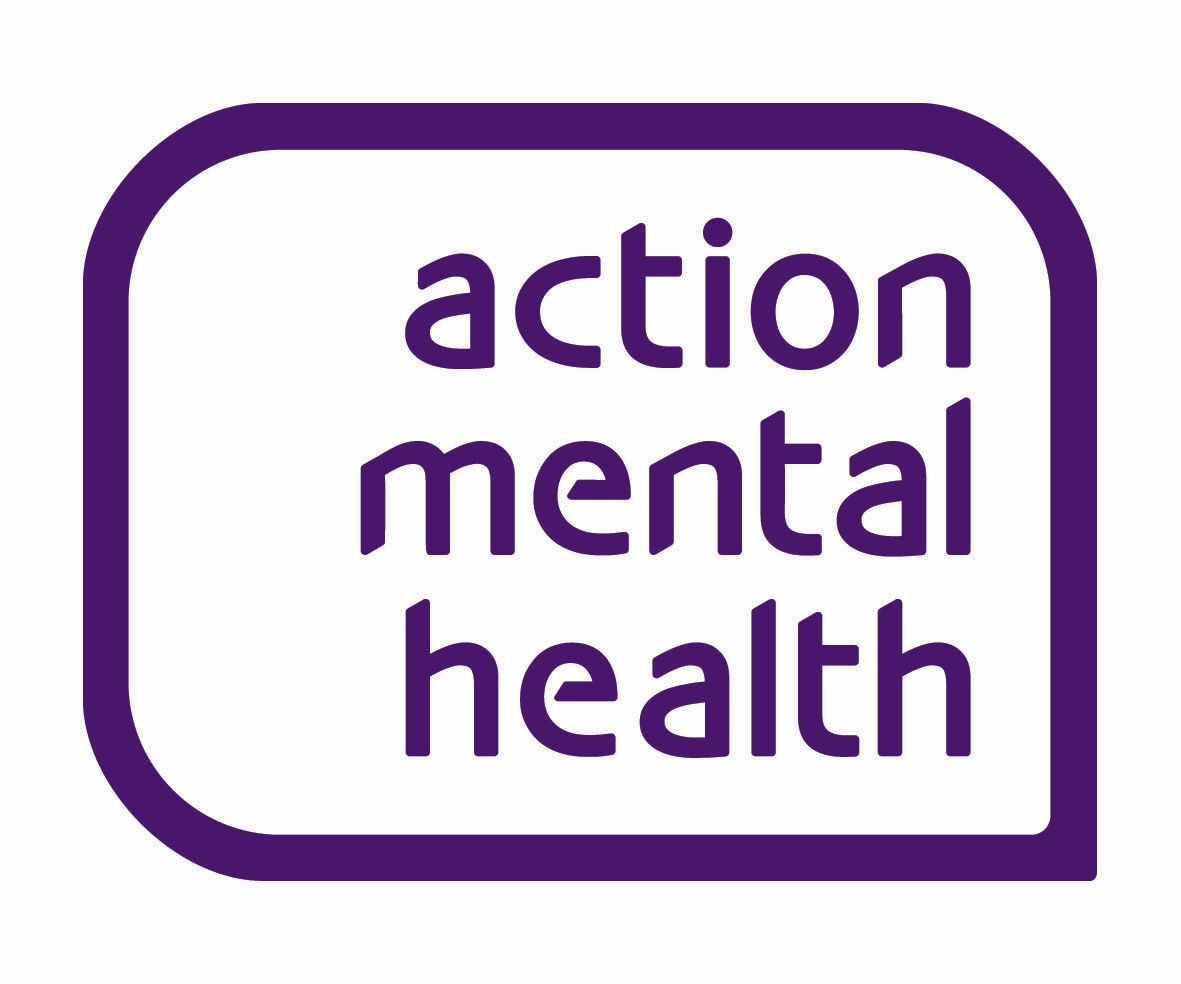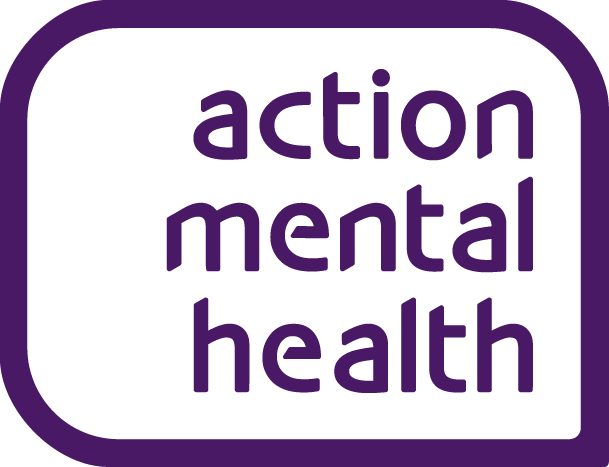Let it go: Why chasing perfection holds you back
Is setting high standards and striving for self-improvement a bad thing? Not necessarily! However, if you find that you’re constantly striving for perfection and your self-worth is continuously dependent on your achievements, it may be time to start tackling perfectionism.
What is perfectionism?
- Adaptive Perfectionism: An individual strives for continuously high standards but does not aim for perfection. They utilise ambitious goals as a way to drive performance but adapt well when they do not reach these goals, focusing on successes rather than failures.
- Maladaptive
Perfectionism: An individual seeks continuously unrealistic standards that
often result in personal cost such as burnout, poor self-esteem or lack of
work/life balance. Individuals experiencing maladaptive perfectionism often
evaluate their own self-worth primarily on their ability to reach these
unrelenting standards.
Whilst adaptive perfectionism can enable individuals to challenge themselves and achieve personal goals, maladaptive perfectionism can actually impair our performance! Individuals who struggle with this type of perfectionism can experience a fear of failure and need for control, often impairing decision-making, contributing to procrastination and leading to missed opportunities for growth.
Do I struggle with perfectionism?
If you’re not sure whether perfectionism is hindering your life, try asking yourself the following questions:
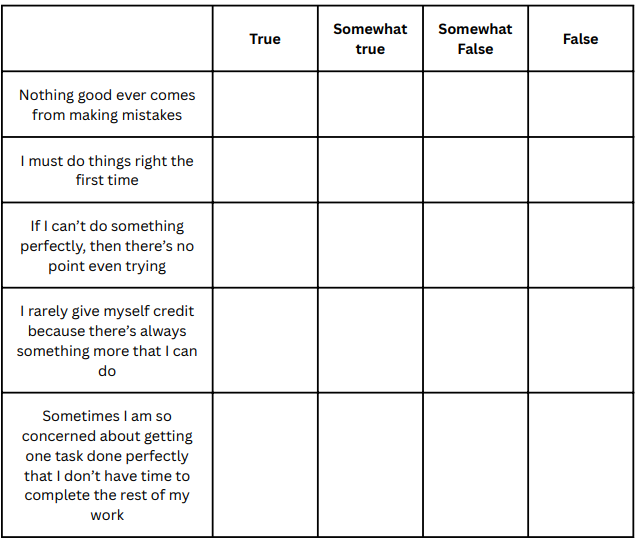
If you answered “true” or “somewhat true” to most of these questions, perfectionism may be something you’d like to work on. When answering these questions you may have found yourself saying “well, it depends on the situation!”. Indeed, some people may note that they’re very perfectionistic in one aspect of their life, but more realistic with their standards in another aspect of their life. To think about areas where perfectionism might be a problem, try ranking each aspect from 1-10, with 1 indicating that you do not at all struggle with perfectionism in this area and 10 indicating that perfectionism significantly impacts this area of your life. Areas to evaluate may include:
- Work
- Study
- Housework/ cleaning
- Close relationships (eg- spouse, friends, family)
- Eating/ weight/ shape
- Personal hygiene and appearance
- Health/ fitness/ sport
- Other
Identifying perfectionistic behaviours:
Now that you’ve
identified whether perfectionism
affects you, it is worthwhile to consider how
perfectionism affects you. Some common areas of perfectionism include:
- Decision-making: Eg- struggling to choose the perfect outfit or decide on the right restaurant
- Excessive organisation: Eg- Needing a completely tidy space to work effectively, relying on excessive to-do lists and needing all items to be completed in order to feel accomplished
- Procrastination: Eg- putting off a task because you’re worried it won’t be good enough
- Overcompensating: Eg- going above and beyond with cleaning the house in preparation for guests
- Correcting: Eg- replacing clothes if there is a tiny flaw with them
- Failing to delegate: Eg- not trusting others to complete a task because they won’t do it as well as you would.
- Avoidance: Eg- not applying for jobs because you don’t exceed every single criteria
What perpetuates perfectionism:
In order to tackle perfectionism, it’s important to understand how these perfectionistic standards are perpetuated.
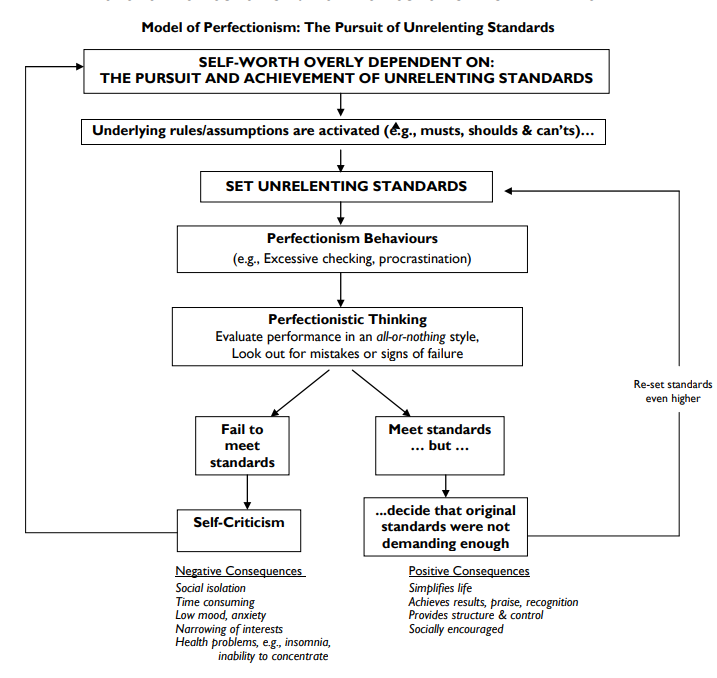
This model shows us how perfectionistic tendencies keep going. You can see that perfectionism often begins when we place a lot of emphasis on achieving high standards to the extent to which our ability to achieve these standards dictates how we feel about ourselves. To meet these standards, we then engage in perfectionistic behaviours and unhelpful thinking. We tend to hyperfocus on our failures rather than successes or we may avoid doing things out of a fear of failure. When we do achieve the unrelenting standard we set for ourselves, we experience short-term relief but then quickly set an even more excessive standard for the next goal. Whether we meet this standard or not, the process is associated with considerable personal cost (time, energy, mental health) and we largely base our value on our ability to achieve and accomplish.
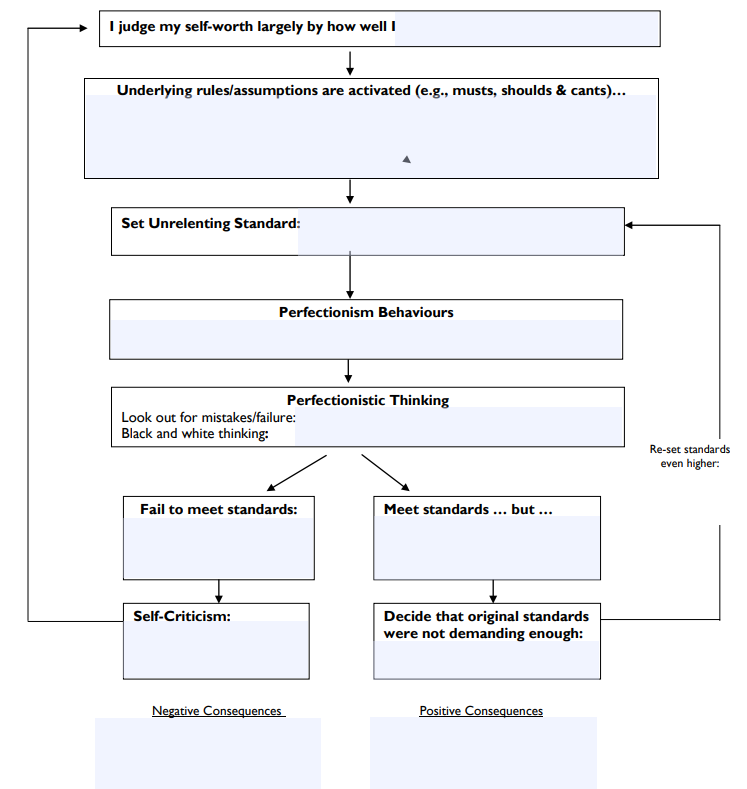
Now that you’ve explored what perfectionism is and how it might be affecting your life, you may be feeling ready to begin tackling perfectionism. To understand how to reduce the impact of perfectionism in your life, check out our next article “Done is better than perfect: Breaking the cycle of perfectionism”.
